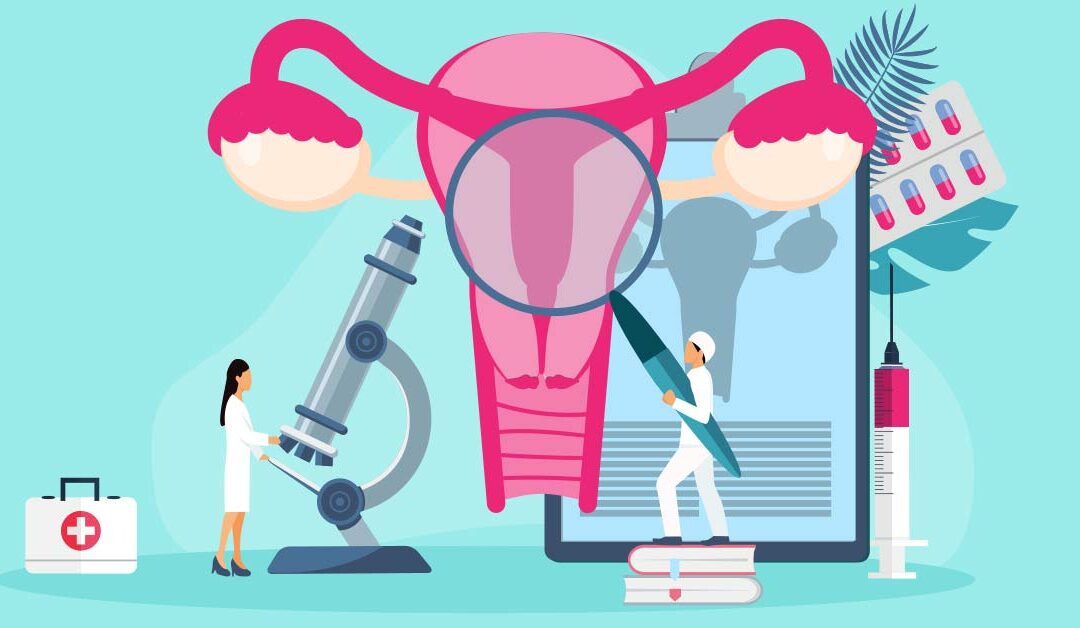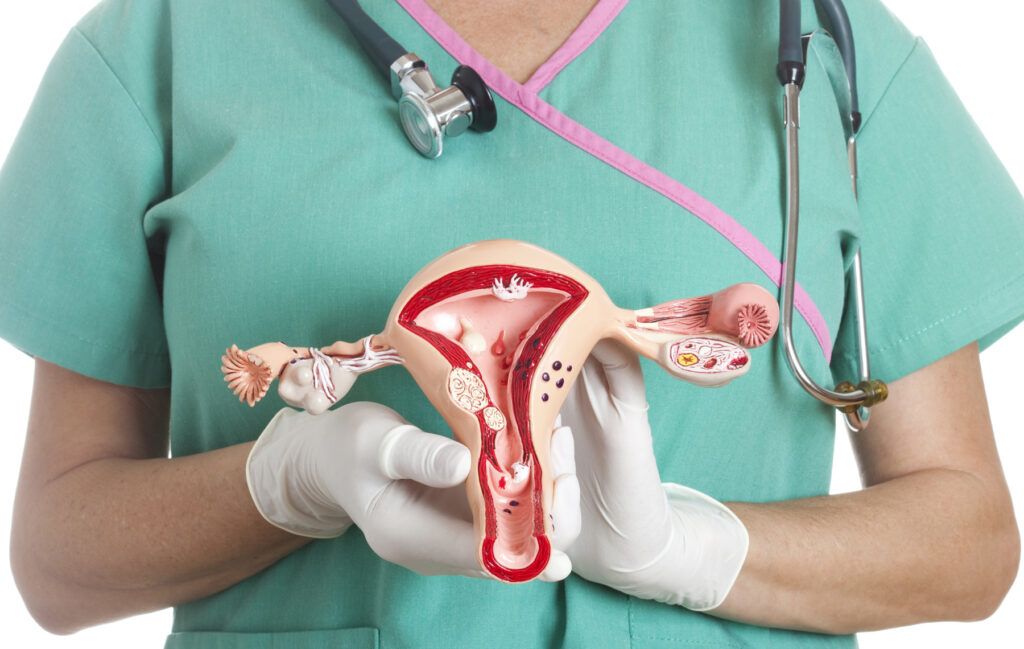Have you been visiting your gynaecologist regularly?
If your answer is yes, then good job! However, if you’re one of the many women answering this question with a no, you should start regularly visiting your gynaecologist.
You’d be surprised to know that cervical cancer is preventable cancer that exists at this time. Because it takes its sweet time to develop, regular visits to the gynaecologist and having yourself screened religiously can help prevent this cancer from ever affecting you.
Let’s take a look at the risk factors of cervical cancer and how they can increase your chance of developing this problem. We will also go through some symptoms that may point towards an advanced-stage disease requiring immediate medical attention.
Cervical Cancer: How Is It Diagnosed?
Cervical cancer is the abnormal cell growth of the cells lining the cervix —an organ connecting the vagina to the uterus. It takes time to develop; hence precancerous lesions (i.e. lesions that point towards potential cancer) can be detected by your gynaecologist.
Regular visits to your gynaecologist can help prevent this disease once and for all. It is so because your gynaecologist would screen you for HPV and schedule necessary tests, i.e. PAP Smear, that will allow them to know if there’s any cancer or not.
Vaccination against HPV will provide you with the necessary weapons to fight against this microorganism, thereby protecting you from cervical cancer. In addition, the pap smear test can detect abnormal cells (dysplastic cells) and help in the early diagnosis of cervical cancer.
What Are The Risk Factors?
Each and every type of cancer is associated with several risk factors that favour its development. Whether it is a poor lifestyle, the habit of smoking or having multiple sexual partners – all of these play a significant role in increasing your chances to acquire cervical cancer.
Here are the numerous risk factors that can predispose a woman to this cancer:
Human Papillomavirus (HPV)
HPV is the leading cause of cervical cancer in women all over the globe. However, the good news is that women can be vaccinated against this virus and continue living a cervical-cancer-free life.
HPV-16 and HPV-18 are the infamous types of the many varieties, which cause cervical cancer in women. It usually affects sexually active women and is killed by our body’s immune system most of the time. But, having a weak immune system or multiple sexual partners can allow this virus to thrive in a woman’s cervix for years.
Smoking
Smoking does kill, and apart from tuberculosis, it can also cause cervical cancer. Women who are chain-smokers have been reported to develop cervical cancer at more increased rates than women who don’t smoke.
Besides, what do you expect smoking to do to your body when it is loaded with at least 70 cancer-causing chemicals?
Decreased Immunity
It is vital to keep your immune system in check – because if this goes down, you go down.
A weakened immune system attracts deadly microorganisms and infections that can bulldoze your health in just a matter of time. As your immune system fights against the dangerous cancer cells, you’re in deep trouble if it isn’t functioning at its best capacity.
Lifestyle Habits
If you’re actually worried about your health and want to stay miles away from cervical cancer, it’s time to bring some changes in your lifestyle. Moreover, having a good diet that contains fruits and keeping your weight in check can also prevent this disease.
Apart from these things, it is also imperative to keep yourself updated with your gynaecologist. Paying timely visits, having yourself vaccinated and screened can help in preventing the development of cervical cancer.
Contraceptives
Oral contraceptives are celebrated for many benefits; however, cervical cancer is not one of them.
According to a few studies, women on oral contraceptives (e.g. birth pills) have a higher chance of developing cervical cancer than those who are not. But, if a woman discontinues them, then the probability of acquiring cervical cancer eventually decreases with time.
Women with intrauterine devices like copper IUD don’t seem to have this issue and have a lesser chance of getting cervical cancer.
Sexual Life
Maintaining a healthy and clean sexual life is as essential as having a good diet and hygiene. Women who have multiple sexual partners or started with their sexual activities early are more prone to cervical cancer. If you want to keep your distance from this cancer, practising safe sexual habits is very crucial.
Reproductive and Family History
Women who have had more than three children with a difference of fewer than two years have increased their chances of falling prey to cervical cancer. Moreover, women who were 17 at the time of their first full-term pregnancy are also at higher risk for cervical cancer.
Genetics also seem to play an integral role in the prevalence and development of cervical cancer. If your blood relative acquires this problem, you’re automatically at an increased risk.
When To Seek Immediate Help?
There are specific manifestations of cervical cancer that require prompt medical attention by a healthcare professional. If you notice any of the following symptoms, you should immediately refer to a doctor:
- Bleeding after sexual intercourse
- Foul-smelling discharge
- Continuous pain in the pelvic area and legs
- Pain during urination or intercourse
- Vaginal discomfort
- Generalized weakness
- Loss of appetite
- Weight loss
You shouldn’t turn a blind eye to these issues in such circumstances and let your gynaecologist know about them.
Conclusion
According to WHO, Cervical cancer is the fourth most common cancer in women. In 2018, an estimated 570,000 women were diagnosed with cervical cancer worldwide, and about 311,000 women died from the disease.
Cervical cancer can be prevented by understanding its risk factors and correcting them. Bringing changes in your lifestyle habits, following a good diet, and having a steady sex life can help you stay healthy and away from this disease for good.
When it comes to cervical cancer – ignorance is not bliss. It is essential to take care of your body and follow up with routine tests recommended for you. Moreover, it is equally important to spread awareness regarding this problem and educate the women around you.




Recent Comments